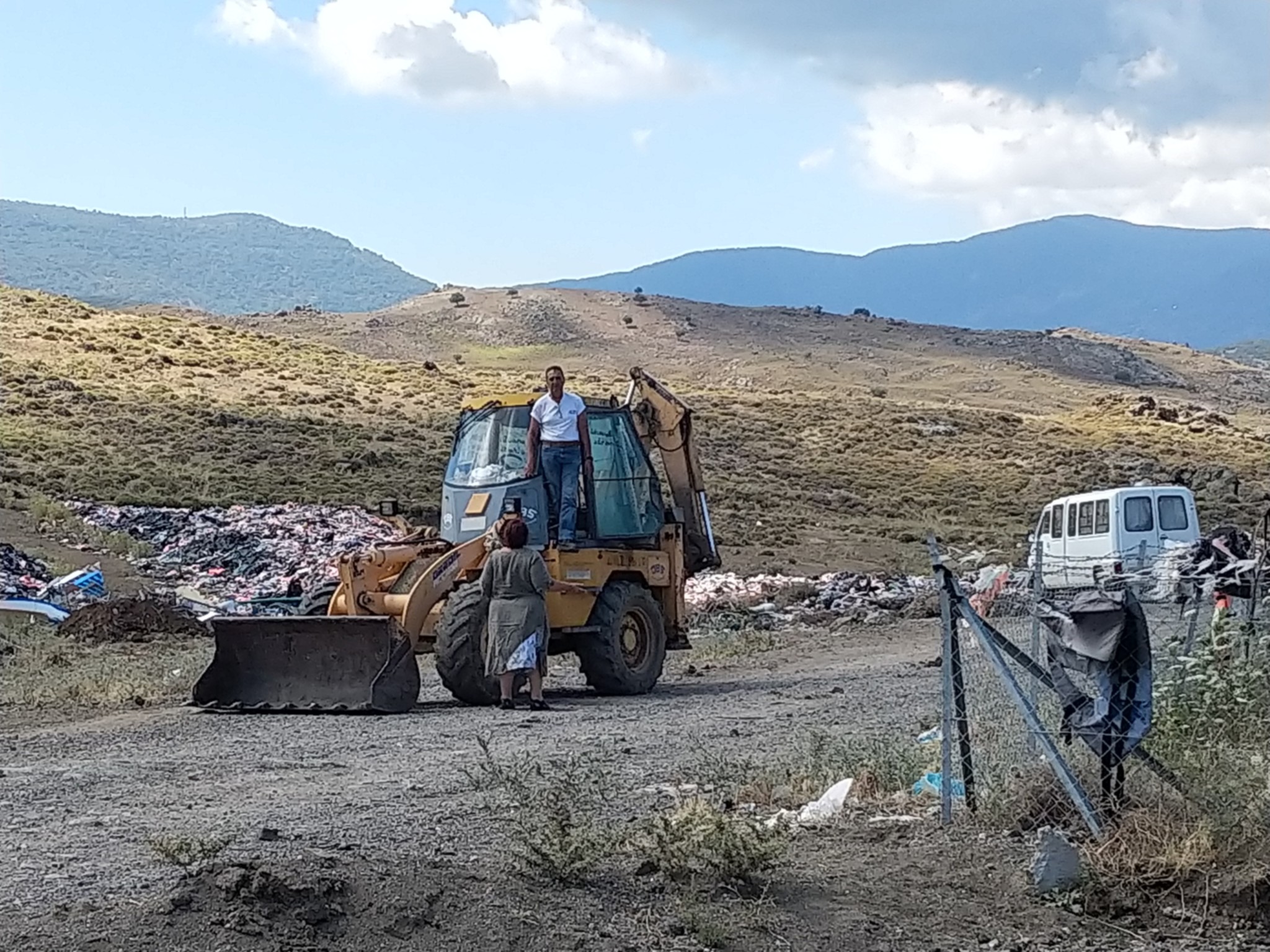Day 15: The knife, the port, the prison, and the boy
By Kunal MehtaPart of a series on my journalism faculty-led program through Italy and Greece.
There are four stories today.
The knife#
We were going to the lifejacket graveyard. It's a dump that has boats and lifejackets from refugees that made it here. But each lifejacket is a good thing - it represents a refugee that successfully completed the journey, and no longer have a need for it.
We got out of the car, started looking around, opening up tripods, when he came. He works at the state-owned dump, and was driving a bulldozer.
"What are you doing here?" he shouted. "This is private property!"
He got out of the bulldozer, and started waving a giant butcher's knife at us, while telling us to leave. We retreated back to our van, but our local driver walked up to him, and stood her ground.

She later told us that she suspects he was a member of the far-right Golden Dawn party, since he told her that "we [Greeks] are being colonized by refugees and migrants" (translated, paraphrased).
The port#
Molyvos is a tourist town. But there simply weren't enough tourists for the amount of shops and services they had. We had heard that the refugee crisis had scared away tourists from the island, but this seemed eerie at times. I wasn't sure whether people were being extremely friendly because that was just the way they were, or whether they were desperate to have people buy their merchandise.
We interviewed a shopkeeper there, who is from Belgium, but has lived and worked on Lesvos for 25 years, meeting her husband here as well. She had an interesting take on the fear of tourists that the island was overrun by refugees. (By the way, it's not.) She explained that people who want to come here for the tourism could just stay in the tourist areas, and those who wnated to come here to help the refugees should do that. It was as if she wanted to treat the island as two parts: a refugee crisis area and a beautiful tourism center.
As we were leaving lunch, I briefly talked with a member of the Hellenic Coast Guard about his experiences. We talked about a few different things, but one quote stuck with me:
"The people who come here are refugees, leaving war, but some are migrants, looking for a better life than home. But to me, it doesn't matter. I save everyone."
The prison#
Call it what you want - Moria is a prison. We drove past it, and it looks like a prison. The walls are prison walls. There's barbed wire on top of the walls. If they didn't want it to be a prison, they would have torn that stuff down.
We'll be going to Moria again on Monday, this time to conduct interviews, get pictures, etc. I'm pretty nervous.
The boy#
We came back to the hotel, I quickly changed, and jumped into the ocean, taking a kayak with me. One of them was a two person kayak, so I taught two of my classmates how to kayak before he came up to me, asking for a ride.
He looked at me and said, "you're black", to which I nodded. Then he looked down into the water at my feet and said, "you're white in the water," to which I responded with "Probably. But why does it matter?"
And he didn't say anything, but I knew why it mattered to him.
He is a five year old boy from the Congo. He spoke decent English, and was usually understandable. But he's a refugee, and had to leave his country for well...whatever this island is. No one else at the resort at the time was as dark skinned as me or him, so hopefully he felt a bit more comfortable.
I didn't see his parents around, so I didn't feel comfortable asking any other questions. We rode out into the ocean, talking about the waves and the kayak. If there was one thing that put a smile on my face today, it was seeing the smile on his face.